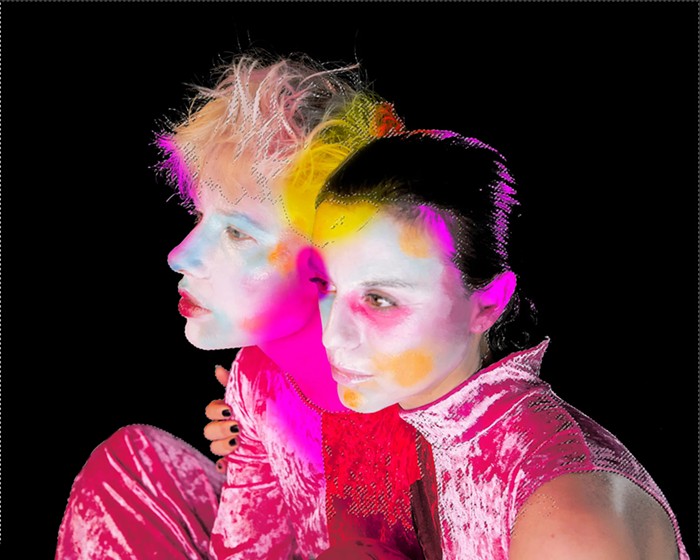Twinkling, small, and delicate, no other instrument evokes childhood like a music box. Even if you don't remember hearing windup lullabies such as "Rock-a-Bye Baby" and "Twinkle, Twinkle Little Star," you probably cranked out "Pop Goes the Weasel" while clasping a garish jack-in-the-box made of coffee-tin metal.
Music boxes seem simple and innocent, just like our idealized vision of childhood. Unlike most musical instruments, which obligate the beginner to control loudness, hit the correct note one right after the other, and divine the correct timbre (no squeaks allowed!), music boxes merely have a crank. Grab it and turn: fast, slow, or somewhere in between, and you will still hear toothpick-sized tines pling and tick, regardless of your skill.
With so little to control, few musicians bother with music boxes. Those who do usually combine it with other instruments or computer-processed sounds. A few composers, notably Stockhausen, John Morton, and Björk, customize and tamper with music boxes, decoupling (or at least disrupting) the distinct, penetrating plings from connotations of innocence.
In his new installation Movements, Portland sound artist Ethan Rose dots the walls of OKOK Gallery in Ballard with a constellation of music boxes powered by low-voltage motors. Radiating in stellar formations, Rose, seeking a kind of sonic astronomy, arranged the devices at various heights from eye level to near the ceiling.
The title Movements not only alludes to the tiny device's history—the first music boxes were built by Swiss clockmakers—but to the near-orbital movement of sound throughout the gallery. Concerted harpish strums chime and then subside into stray plucks and pings, like stars twinkling in a nighttime sky. There is beatific silence, which, when it surprises you, stretches time. Occasionally, imposing chords resound, as if someone added an extra octave to a piano in the next room.
You might hear any number of tunes in Movements. I thought I recognized fragments of "Rock-a-Bye Baby" and "Twinkle, Twinkle Little Star." Yet I was wrong. Look close and see how Rose bent some of the tines on each box, dropping enough notes to make the naggingly familiar into something new. Rose changes the tempo, too; the nub-studded cylinder of each music box stops and starts like variously sized gears in an old clock or antique pocket watch.
Marvel at Movements' sonic perspective: Place your ear parallel to the wall, then listen while gazing along the wall's flat plane. Similar to the curvature of a crude telescope, sight and sound bend, distorting the presence and proximity of what you see and hear. Gaze on, astronomer! ![]()
Movements at OKOK Gallery, 5107 Ballard Ave NW, 789-6242, Tues–Sat noon–6 pm, Sun 11 am–5 pm, free. Through Sat Jan 3.
Sat 12/27
ELLINGTON SACRED CONCERT
Near the end of his life, Duke Ellington (1899–1974) composed three Sacred Concerts to honor God through jazz. In his autobiography Music Is My Mistress, Ellington stressed that his Sacred Concerts "are not the traditional mass jazzed up" but instead fuse jazz, gospel, the blues, recitative, and dance. For this annual concert, the Seattle Repertory Jazz Orchestra compiles music from all three Sacred Concerts—including the lovely "Come Sunday"—and imports terrific vocalists like Dee Daniels, who you can bet will bring down the house. This show is always packed, so plan ahead. First Presbyterian Church, 1717 Bellevue Way NE, Bellevue, 547-6763, 7:30 pm, $24/$28.
KELLEY JOHNSON QUARTET
Most listeners can detect the signs of a singer momentarily veering into improvisation: added vibrato, a slightly delayed word or phrase, and so forth. Yet few vocalists can make such fleeting improvisatory touches add up to something new in an old, kinda corny tune like "Moon River." On her recent disc Home (Origin), this singer transforms the schmaltzy Henry Mancini standard into a yearning nocturne, framed with just the right rhythmic weight and emotional heft. Live, Johnson and her quartet cook, capering through standards and forgotten tunes. Tula's, 2214 Second Ave, 443-4221, 8 pm, $15.
Wed 12/31
SEATTLE SYMPHONY
Gerard Schwarz, the Seattle Symphony Chorale, and the Seattle Symphony scale one of the summits of the symphonic repertory, Beethoven's Symphony No. 9. The triumphant choral finale of the Ninth is perhaps the most thrilling moment in all of music. Also, the Seattle Seahawks Blue Thunder Drumline bash out popular marches between sprightly orchestral lollipops by Johann Strauss Jr., John Philip Sousa, and Alberto Ginastera. For the symphony's full New Year's package, see www.seattlesymphony.org for details. Benaroya Hall, 200 University St, 215-4747, 9 pm, $40–$150.
NEW YEAR'S AT ST. JAMES
Durable tenor Howard Fankhauser teams up with two fledgling tenors (Gregory Carroll and Alex Mansoori) bound for San Francisco Opera's young artist program to sing seasonal hymns and holiday songs. St. James Cathedral, 804 Ninth Ave, 382-4874, 11 pm, students pay as able/$25 suggested donation.
Fri 1/2
THE TEACHING
Bassist Evan Flory-Barnes, keyboardist Josh Rawlings, and drummer Jeremy Jones are on to something special: This trio makes groove-based jazz that elides across funk, hiphop, meditative dissonance, and the utterly unexpected, like the shaking sleigh bells heard momentarily on "As I Am" from their upcoming eponymous disc. Triple Door, 216 Union St, 838-4333, 7:30 pm, $15.
Sat 1/3
ZAPPA PLAYS ZAPPA
I will always love Frank Zappa (1940–1993) for his immortal lyric, "Every town must have a place where phony hippies meet." Composing electronic music (e.g. Lumpy Gravy, "While You Were Art II") and song cycles (Joe's Garage) as well as writing for orchestras and carving out daunting works for his own crypto-prog rock bands ("Naval Aviation in Art" and "The Black Page"), Zappa extended the 20th-century composerly tradition of writing for wildly different contexts and configurations. Although I cringe at Zappa's sporadically scatological poo-poo caa-caa lyrics, his best works rock within smart extended forms. Here, his son Dweezil continues another tradition, that of composer's son as champion, re-creating works from the elder Zappa's vast catalog. Also Sun Jan 4 at 6 pm with a different set list. Triple Door, 216 Union St, 838-4333, 8 pm, $115/$145.


















